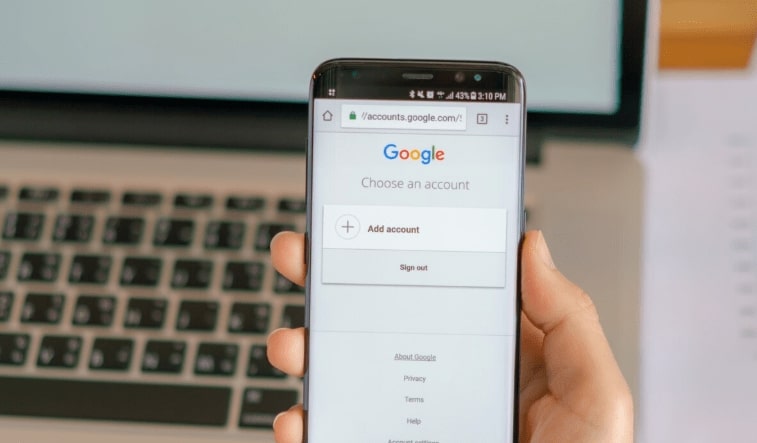Keywords are the words or phrases used to match your Google Ads with what users are searching for. The types of keywords in Google Ads decide how closely a user’s search should match your keyword. This helps Google choose whether your ad should enter the auction and show to users. It’s also a key factor in making your PPC campaigns more successful. In this blog post from HDM Agency, we’ll explore the different keyword match types in Google Ads and what you should know about using them effectively.
What Are Keyword Match Types?
Keyword match types are settings in Google Ads that control how your ads appear for different user searches. They help you define how strict or flexible your keyword targeting should be. Choosing the right match type ensures that your ad shows to the right audience at the right time. It also helps you manage your budget better by avoiding irrelevant clicks.
Why Match Types Matter in PPC?
Match types help advertisers reach the right users without wasting budget. If your match types are too broad, your ads may show for unrelated searches. If they’re too narrow, you might miss valuable traffic. That’s why choosing the right match type is important for ad performance, conversions, and return on investment.
To understand more about how online campaigns work, check out What is Digital Marketing and read the article.
How Match Types Affect Ad Visibility?
The match type you choose affects how often your ad shows, where it appears, and how relevant it is to the user’s query. That means it can directly impact your click-through rate and your campaign’s success. To learn more about digital advertising benefits, visit Benefits of Digital Marketing and read the content.
How Match Types Affect Ad Visibility; Step by Step:
- Step 1; Keyword is matched to a user’s query: Google checks if the user’s search is a close enough match to your keyword based on the match type you selected.
- Step 2; Google enters your ad into the auction: If the keyword matches, your ad enters the auction with other relevant ads for that search.
- Step 3; Ad Rank is calculated: Google uses your bid, quality score, and expected impact of extensions to calculate your Ad Rank.
- Step 4; Ad is shown (or not): If your Ad Rank is high enough, your ad is shown. Otherwise, it doesn’t appear for that query.
- Final Step; User clicks or skips: The user either clicks your ad or skips it, depending on how relevant and appealing it is.

Types of Keyword Matches Explained
Google Ads offers different types of keyword matches. Each type gives you control over how closely a user’s search needs to match your keyword. Choosing the right match type helps you manage traffic, costs, and relevance. Let’s take a look at each one with simple examples tailored to a UAE-based business.
Broad Match
Broad match is the default type. It shows your ad for searches that include any words related to your keyword, even in different orders. For example, If your keyword is luxury apartments Dubai, your ad might show for buy apartment near the beach or Dubai luxury real estate. It’s great for reaching a wide audience, but may bring in some irrelevant traffic. Useful for campaigns like Google Ads for Recruitment, where you want to attract various job seekers.
Phrase Match
Phrase match shows your ad when the user’s search includes your keyword in the exact order, but can have words before or after it. Example: If your keyword is fine dining Dubai, your ad might show for best fine dining Dubai restaurant or luxury fine dining Dubai experience. It gives more control than broad matches but still keeps reach flexible.
Exact Match
The exact match is the most precise. It shows your ad only when the user searches for your exact keyword or very close variations. Example: If your keyword is car rental in Abu Dhabi, your ad will only show for searches like car rental in Abu Dhabi or rent a car in Abu Dhabi. This type is best when you want to target very specific search intent.
Perfect for niche campaigns like Google Ads or Social Media Ads?, where targeting exact needs is important.
Broad Match Modifier (Historical Note)
Broad Match Modifier (BMM) was a flexible match type that allowed you to lock certain words in a broad match keyword. It is no longer available, but many advertisers used it for years to increase relevance.
For example, +luxury +villa would show ads only if both words appeared in the search, in any order. Today, phrase match covers most of the same cases.
Negative Match (Keyword Exclusion)
Negative match prevents your ads from showing when certain words are in the user’s search. It helps you avoid irrelevant clicks. Example: If you’re selling premium services and don’t want users looking for cheap options, you can set cheap as a negative keyword. So, searches like cheap web design in Dubai won’t trigger your ad. This is useful when you want to protect your brand’s value and save your budget.
When & Why to Use Each Match Type
Each match type works best in different situations. The right choice depends on your campaign goals, target location, and budget. Using the right match type helps you show your ad to the right people, reduce wasted spend, and increase performance. In this part, we’ll guide you on how to choose the right match type for your campaign strategy.
Choosing Based on Campaign Goals
Your keyword match type should align with your marketing goals. If you want brand awareness or more traffic, broad match works best. For more control and better conversions, go with phrases or exact matches.
Example: A Dubai-based cleaning service that wants to get more general traffic can use broad matches for keywords like home cleaning service. But if the goal is bookings from high-intent users, an exact match for book cleaning in Dubai works better.
If your goal is to cut costs and increase leads, explore strategies to Reduce CPC and Get More Conversions and other crucial things.
Considerations for Local vs. Global Campaigns
When targeting users in a specific city like Dubai or Abu Dhabi, using phrases or exact matches ensures relevance. For global campaigns, broad matches can help reach a wider audience. Example: A local restaurant in Dubai might use the exact match for the best biryani in Dubai. But a global e-learning platform could use broad matches for online courses to attract students worldwide.
Below is a table comparing match types for local vs. global campaigns:
| Criteria | Broad Match (Global) | Phrase Match (Local) | Exact Match (Local or Niche) |
| Target Area | Multiple countries | Specific city or region | Very specific search intent |
| Control Over Search Terms | Low | Medium | High |
| Budget Efficiency | Medium | High | Very High |
| Example Use | buy sports shoes | men’s suits in Dubai | rent a car Abu Dhabi |
| Best For | Brand reach | Local lead generation | High-quality leads and sales |
If you’re optimizing for results, read how to Boost ROI with Google Ads Management and get some goals.
Cost Impact of Each Match Type
Different match types can have different effects on your ad spend. Broad match often leads to more impressions but can also cause irrelevant clicks. Phrase and exact match tend to have higher relevance, which means better conversion rates and more efficient spending.
For example; A UAE real estate agency using broad match for homes in UAE might get clicks from users looking for rent or purchase in unrelated areas. But using exact match for buy villa in Palm Jumeirah brings qualified traffic and better return on ad spend. Choosing the right match type helps you lower CPC and increase conversion value.
Real Examples: Keyword Match Types in Action
To fully understand match types, it’s helpful to see how they work in real campaigns. Let’s review scenarios that show how different match types lead to different ad results. These examples help marketers choose smarter, test better, and drive more ROI with every keyword.
Example Scenarios with Search Terms
Let’s say you run a car rental business in Dubai and here’s the journey:
- Broad Match Keyword: car rental: Can trigger ads for cheap cars, automobile services, or rent SUV in Sharjah. Less control, but more impressions.
- Phrase Match Keyword: car rental Dubai: Can trigger ads for affordable car rental Dubai or best car rental Dubai Marina. More relevant searches.
- Exact Match Keyword: rent a car Dubai: Only triggers ads when that exact phrase or close variation is searched.
Crucial Point: Use A/B Testing in Google Ads to compare performance and choose what works best.
Performance Differences Across Match Types
In a live campaign for an event planning service in Abu Dhabi:
- Broad Match delivered the most clicks, but 60% were irrelevant.
- Phrase Match brought 35% fewer clicks but had a 2x higher conversion rate.
- Exact Match generated fewer impressions, but every click led to high-quality leads.
In summary, exact and phrase match types may deliver lower volume, but much higher value. If your focus is growth, use them to Get More Customers with Google Ads and other achievments.
Let Our Experts Manage Your Match Strategy
Choosing the right match type isn’t just about knowing the options. It’s about using them smartly in every campaign. That’s where expert help makes a big difference. At HDM Agency, we understand how to adjust your keyword strategy for real results. Whether you want to reduce costs, increase clicks, or improve conversions, we can help. Let us manage your Google Ads like professionals; because we are.
Why You Need Expert Oversight?
Running Google Ads without experience can lead to wasted budget and low performance. Experts help you avoid common mistakes, adjust campaigns in real time, and make smarter data-driven decisions. We monitor every detail; so you can focus on growing your business. For more information about services we offer, visit our Google Ads Services page.
What HDM Agency Can Do For You?
At HDM Agency, we handle every part of your Google Ads strategy, including match type optimization. Our team works with data, tools, and creativity to get better results for your business.
Here are 7 benefits of working with us:
- Smart keyword planning
- Budget control and CPC reduction
- Campaign structure optimization
- A/B testing and performance tracking
- Ad copywriting for better CTR
- Targeted campaigns for UAE-based businesses
- Transparent reporting and insights
Want to know more? Visit our HDM Agency homepage.
Final thoughts: Match Types Make All the Difference
Keyword match types are one of the most powerful tools in Google Ads. Choosing between broad, phrase, and exact match helps you control your budget, target the right audience, and reach your goals faster. Every campaign needs a custom match strategy; based on location, intent, and business goals. If you want better results, let our team in the UAE help you. Contact the HDM branch in the UAE today at +971 56 26 01 368 or simply fill out our free consultation request form. Let’s build smart campaigns together.
FAQs about Keyword Match Types in Google Ads
- Can I use different match types in the same campaign?
Yes, using multiple match types allows you to test and compare performance across different search intents. - How often should I review and update my keyword match types?
It’s a good idea to review them every 2–4 weeks, or whenever you launch a new product or service. - Do match types affect Quality Score?
Not directly, but the relevance of your keywords and ads (which is influenced by match types) does impact your Quality Score. - Is exact match always the best for conversions?
Not always. It depends on your business goals. Exact match brings highly targeted traffic but may limit reach. - What’s the biggest mistake advertisers make with match types?
The most common mistake is using broad match without exclusions, which can lead to irrelevant clicks and high costs.







